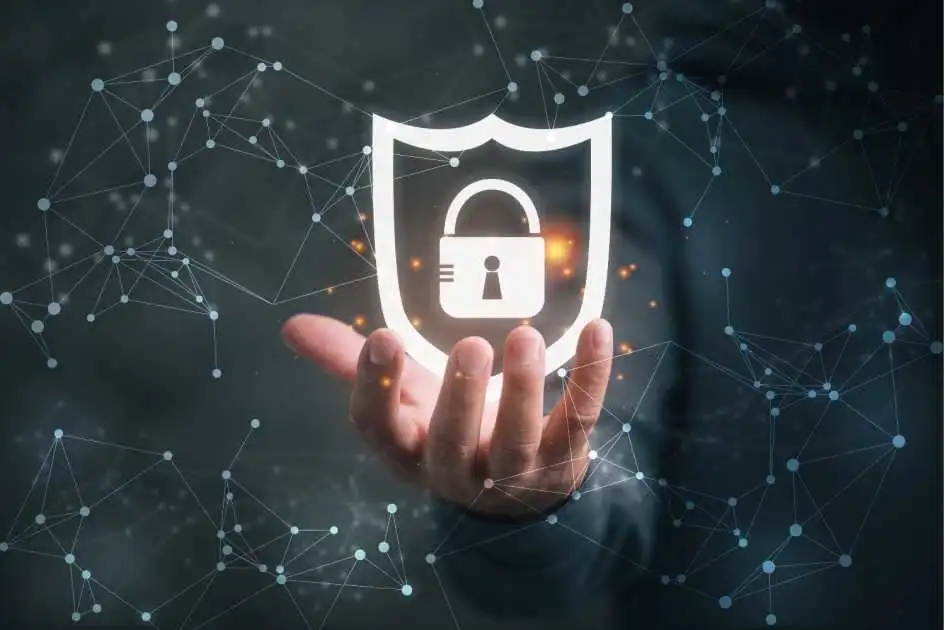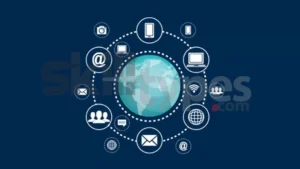
In today’s increasingly digital world, where businesses operate online and consumers trust websites with sensitive data, ensuring the security of online interactions is paramount. Enter the cyber security seal—a symbol of trust and credibility that signals to users that a website or business is taking necessary steps to protect their information.
This comprehensive guide dives into everything you need to know about cybersecurity seals, from their history and importance to how they work, the types available, and how businesses can benefit from them.
What is a Cyber Security Seal?
A cyber security seal is a visible certification mark awarded to websites, platforms, or services that meet certain security standards. It provides users with reassurance that the business or website they are interacting with follows stringent cybersecurity protocols to protect their personal and financial information.
Cyber security seals can range from certificates ensuring encrypted communication to those ensuring compliance with industry-specific regulations, such as health data protection (HIPAA) or payment data security (PCI DSS).
History and Evolution of Cyber Security Seals
The concept of cyber security seals has evolved alongside the growth of the internet. In the early days of the web, concerns about privacy and security were limited. However, as e-commerce and online transactions became more prevalent, the need for a system to signal trust and security became critical.
- 1990s: The advent of SSL/TLS certificates marked the first widespread implementation of cybersecurity seals. SSL (Secure Socket Layer) was developed to encrypt data exchanged between browsers and servers, which led to the creation of trust seals showing users that the website was secure.
- 2000s: With the increasing number of data breaches, regulations like PCI DSS (Payment Card Industry Data Security Standard) and HIPAA (Health Insurance Portability and Accountability Act) introduced new compliance seals for industries dealing with sensitive information.
- 2010s – Present: The rise of privacy-focused regulations, such as GDPR (General Data Protection Regulation) and CCPA (California Consumer Privacy Act), brought attention to privacy seals, ensuring businesses comply with data privacy standards. Moreover, third-party security seals from companies like Norton and McAfee gained popularity as consumer trust in online transactions became a top priority.
Types of Cyber Security Seals
Cyber security seals can be categorized based on their specific focus or the type of protection they offer. Below are the most common types:
SSL/TLS Certificates
What are SSL/TLS Certificates?
SSL (Secure Sockets Layer) and TLS (Transport Layer Security) certificates encrypt communication between a user’s browser and a website’s server. An SSL/TLS seal shows that the site encrypts data, preventing unauthorized access.
Why are SSL/TLS Certificates Important?
SSL/TLS certificates are vital for securing sensitive data such as credit card numbers, login credentials, and personal information. Websites with SSL certificates are identified by the “https://” prefix and a padlock icon in the browser bar, which assures users their data is safe.
Compliance Seals (e.g., PCI DSS, HIPAA)
PCI DSS Seal
The PCI DSS seal is awarded to businesses that comply with the Payment Card Industry Data Security Standard. This standard applies to companies handling cardholder data, ensuring they meet specific security measures to protect payment information.
HIPAA Seal
The HIPAA seal is relevant for organizations handling health-related information. It demonstrates compliance with stringent rules for the security and privacy of health data, critical for industries like healthcare and insurance.
Privacy Seals (e.g., GDPR, CCPA)
GDPR Seal
The GDPR seal indicates that a business complies with the European Union’s General Data Protection Regulation, one of the strictest privacy laws globally. It ensures businesses protect personal data and provide transparency about how user information is used.
CCPA Seal
Similar to GDPR, the CCPA seal signifies compliance with the California Consumer Privacy Act, which enhances privacy rights and consumer protection for residents of California.
Third-Party Security Seals (e.g., Norton Secured, McAfee Secure)
Third-party cybersecurity seals like Norton Secured and McAfee Secure offer a layer of credibility by certifying that a website or business has undergone security testing. These seals are often seen on e-commerce sites to reassure users of the site’s security practices.
How Do Cyber Security Seals Work?

Cyber security seals are more than just symbols displayed on a website—they represent a rigorous process of validation and certification. Here’s how they work:
- Initial Assessment: The company seeking a cyber security seal must undergo an evaluation of its security infrastructure. This includes checking for vulnerabilities, compliance with relevant standards, and the overall cybersecurity posture.
- Certification: If the company passes the assessment, it receives a cybersecurity seal, which it can display on its website to show its commitment to security.
- Ongoing Monitoring: Cyber security seals require ongoing certification. You must conduct regular audits and security checks to maintain the seal. For example, you need to renew SSL certificates annually or every few years.
- Recertification: Some cyber security seals, especially compliance-related ones like PCI DSS and HIPAA, require businesses to undergo periodic recertification to ensure they continue to meet evolving security standards.
The Importance of Cyber Security Seals for Businesses
For businesses, cybersecurity seals offer several key benefits:
1. Building Customer Trust
Displaying a cyber security seal shows customers that your business values their privacy and is committed to protecting their data. This can increase confidence in your website or online services, leading to higher conversions and sales.
2. Protecting Sensitive Data
Data breaches can cost businesses millions of dollars and irreparably damage their reputation. Cyber security seals demonstrate that the business is taking steps to protect sensitive information like payment details, personal information, and health records.
3. Regulatory Compliance
Many industries are required by law to adhere to specific cybersecurity standards. Cyber security seals such as PCI DSS, HIPAA, and GDPR compliance can help businesses avoid fines and legal issues related to non-compliance.
4. Enhancing Brand Reputation
In an era where consumers are increasingly aware of privacy concerns, businesses that prioritize security are more likely to build a strong, positive brand reputation.
Key Figures, Facts, and Statistics
- 94% of customers say they avoid websites that don’t display any form of trust seal or certificate.
- Over 40% of all cyberattacks target small to medium-sized businesses, many of which lack strong cybersecurity measures.
- SSL/TLS adoption is steadily increasing, with over 95% of websites now using HTTPS encryption.
- In 2021, the average cost of a data breach was $4.24 million, underscoring the importance of cybersecurity measures like seals and certifications.
- Businesses with third-party security seals see an average increase in conversions of 8-10%.
Best Practices for Implementing Cyber Security Seals
1. Choose the Right Seal for Your Business
Consider your industry and the type of data you handle when choosing a cybersecurity seal. For instance, an e-commerce site would benefit from an SSL seal, while a healthcare provider would need a HIPAA compliance seal.
2. Educate Your Customers
While displaying a cybersecurity seal is crucial, you should also educate your customers about its significance. Provide information on how your seal protects their data and why it matters.
3. Regular Audits and Updates
Cyber security requires constant attention. Regularly audit your systems and keep your cybersecurity seals up to date.
4. Combine Seals with Other Security Measures
Cybersecurity seals should be part of a broader security strategy that includes firewalls, encryption, regular software updates, and strong authentication methods.
Challenges and Limitations of Cyber Security Seals
While cybersecurity seals offer numerous benefits, there are also some challenges and limitations:
- Misconception of Complete Protection: Some users may falsely believe that a cybersecurity seal guarantees 100% protection. Seals are an indicator of strong security measures, but they cannot prevent all forms of attacks.
- Cost: Obtaining and maintaining cybersecurity seals, especially for small businesses, can be costly.
- Scope of Protection: Not all cybersecurity seals cover every type of security threat. For example, an SSL certificate encrypts data but doesn’t protect against phishing attacks.
Future Trends in Cyber Security and Certification Seals

As cybersecurity threats evolve, so too must cybersecurity seals. Key trends include:
- AI and Automation: As AI-driven cyberattacks become more sophisticated, cybersecurity seals may need to integrate more advanced detection and response mechanisms.
- Blockchain for Security: Blockchain technology could offer decentralized ways to certify and secure data, potentially creating new types of seals in the future.
- Zero Trust Architecture: As the traditional network perimeter fades, seals may evolve to reflect a “zero trust” approach to cybersecurity, where organizations no longer trust any user or system by default.
FAQs
1. What is the most common cyber security seal?
The most common cybersecurity seal is the SSL/TLS certificate, which encrypts data between a user’s browser and a website.
2. Are cyber security seals mandatory for all businesses?
No, but many industries require compliance with certain cybersecurity standards, which may include obtaining specific seals.
3. How often do cyber security seals need to be renewed?
Renewal periods depend on the seal. You typically need to renew SSL certificates annually, while others, like PCI DSS or HIPAA, require periodic recertification.
4. Do cyber security seals protect against all types of attacks?
No. While seals signify that a website or business adheres to certain security standards, they do not guarantee protection against every type of cyberattack.
5. Can small businesses afford cyber security seals?
While some cybersecurity seals can be expensive, others, like SSL/TLS certificates, are relatively affordable. Many providers offer scalable solutions for small businesses.
Conclusion
In today’s digital landscape, cyber security seals play a vital role in building trust, ensuring compliance, and protecting sensitive data. By understanding the different types of seals available and how they work, businesses can better protect themselves and their customers. Implementing a cybersecurity seal should be part of a broader, ongoing commitment to security, ensuring a safer online environment for all.







